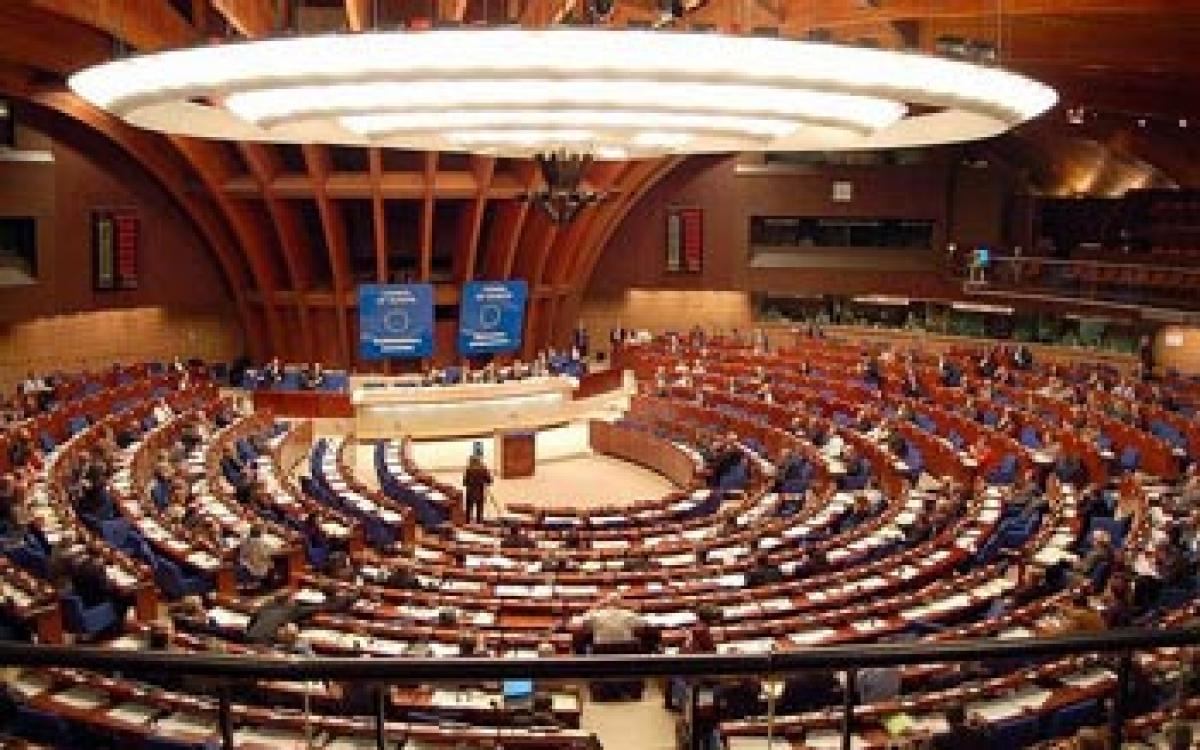Council of Europe Convention

The Union Cabinet on November 5 gave its approval for formally requesting the Council of Europe for India’s accession to the Council of Europe Convention on the transfer of Sentenced Persons through a letter.
.jpg) The Union Cabinet on November 5 gave its approval for formally requesting the Council of Europe for India’s accession to the Council of Europe Convention on the transfer of Sentenced Persons through a letter. The Cabinet also approved India's accession to the convention, upon receiving the formal invitation from the Council of Europe to become a party to it, according to NetIndian.in.
The Union Cabinet on November 5 gave its approval for formally requesting the Council of Europe for India’s accession to the Council of Europe Convention on the transfer of Sentenced Persons through a letter. The Cabinet also approved India's accession to the convention, upon receiving the formal invitation from the Council of Europe to become a party to it, according to NetIndian.in.
Acceding to a multilateral convention of the Council of Europe on the Transfer of Sentenced Persons, to which 64 States are Parties, would obviate the need to enter into bilateral arrangements with each one of them. Accession to the Convention will help Indian orisoners imprisoned in the Council of Europe Countries or vice-versa, to be near their families for serving the remaining part of their sentence. This would facilitate the process of their social rehabilitation, an official press release said.
The Council of Europe Convention on transfer of Sentenced Persons came into being on 12th April, 1983 and is effective since 1 July 1985. Prior to 2004 there was no legal provision either in the Code of Criminal Procedure or any other law under which foreign prisoners could be transferred to the country of their origin to serve the remaining part of their sentence nor was there a provision for the transfer of prisoners of Indian origin convicted by a foreign court to serve their sentence in India.
From the humanitarian angle it was felt that if foreign convicted nationals were transferred to their home countries and prisoners of Indian origin brought to India to serve the remaining part of their sentence, it would enable them to be near their families and would help in the process of their rehabilitation, write the NetIndian.in. Hence the Repatriation of Prisoners Act, 2003 was enacted for achieving the above purpose. For achieving the objectives of the Act, a Treaty/Agreement is required to be signed with countries having mutual interest with us on this matter.
So far, India has signed bilateral agreements with 27 countries and we have also acceded to one multilateral treaty that is the Inter-American Convention on Swerving Criminal sentences Abroad (IAC) - which is signed by Member States of the Organisation ofAmerican States (OAS) but is also open to accession by non-OAS countries. Currently, India has functional arrangements with 36 countries; (20 countries under bilateral agreement and 16 countries under Inter-American Convention on Serving Criminal Sentences Abroad) for transfer of sentenced persons, adds NetIndian.in.








